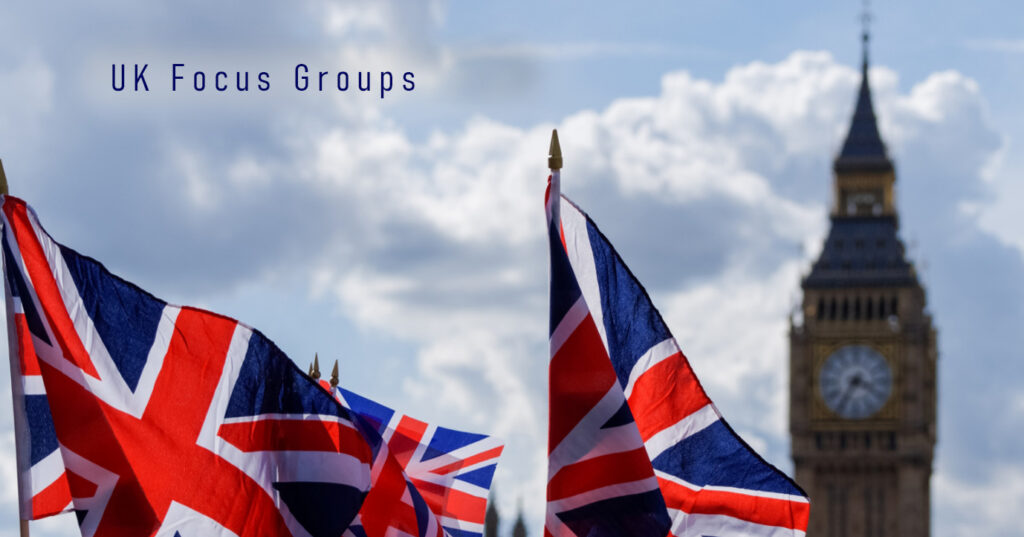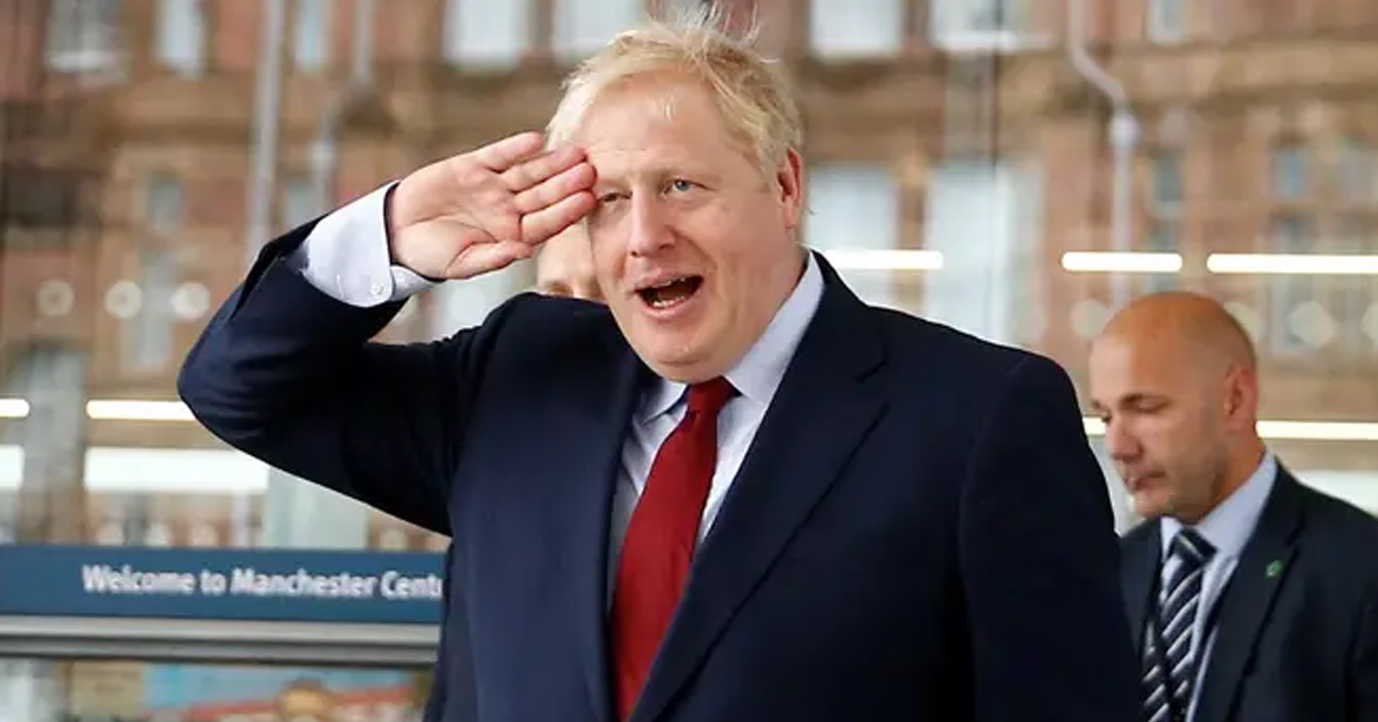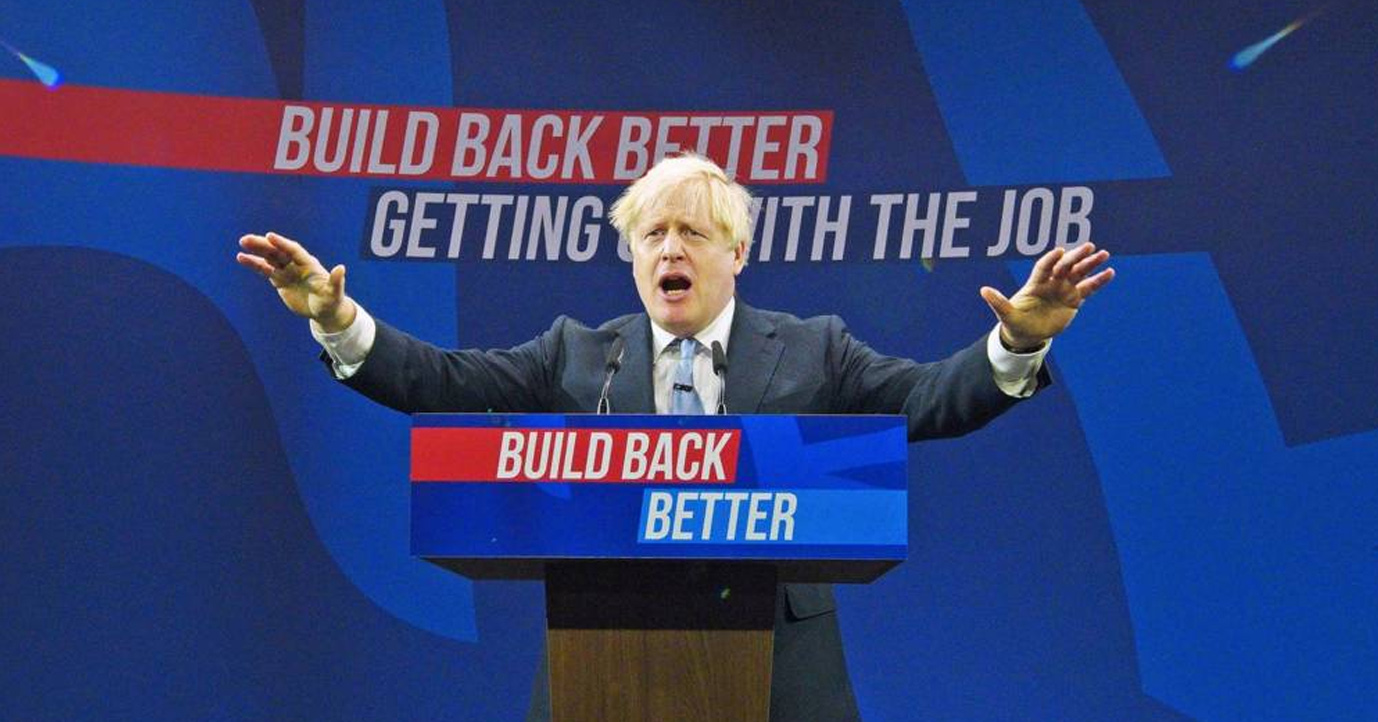
This week’s focus groups took place in Nottingham, Loughborough and Southampton. Our undecided referendum voters had noticed plenty of news, even if they were no closer to making up their minds. “Apparently if we leave the sky’s going to fall in and World War Three is going to break out.” “The Bank of England came out today and said there could be another recession.” “Dave and Boris are having a bit of a spat. I’m not sure they’re still pals.” “The out tour bus started today.” “I read hair dryers and kettles and pressure cookers would be nobbled by the EU if we stay. Now it’s personal! I clicked on that because it’s an interesting Euro-story, not the same old same old.” “They were even bringing up Churchill because of something he said in a speech in 1948.”
Nearly everyone in the groups had picked up on David Cameron’s speech warning that Britain leaving the EU would threaten peace and security, but few were persuaded. “Is that trying to frighten us, saying we’re in danger of being attacked by the Russians? He’s just throwing everything into the pot;” “Next they’ll say we’re going to be attacked by extra-terrestrials.”
Having watched extracts from the PM’s speech, some felt he had been more measured than the headlines, though this may have been calculated: “Cameron isn’t exactly saying World War Three, it has been blown up a bit. But he’s happy for it to be blown up. He can say, ‘I didn’t say that, but…’”. And a few admitted it had worried them, despite the obvious hyperbole: “Part of me thinks it’s rubbish but I’m a mum of three, one of my family wants to join the army, and looking at history and things that have happened before – you think, oh my goodness, if there’s a war, and it all starts going round in your head;” “Are you sure you want to gamble with the Russians?”
But for most people, including many who were otherwise leaning towards voting to remain, the security argument did not hold water. For one thing, the EU seemed irrelevant in this field: “It’s NATO and our own defence that’s the main thing in security. This isn’t the main reason I would stay in or vote out.” For another thing, when the EU had faced challenges to peace and security in the past, it had failed abysmally: “When there have been things on the border with Europe, like the former Yugoslavia, Europe failed to act even though there was genocide;” “Russia annexed Crimea and Europe did bugger all;” “The EU is like a pitbull with no teeth.” It also seemed odd to cite the EU as a source of protection when it came to the migrant crisis, when “Angela Merkel said they could all come in so she partly caused it”.
Finally, it seemed to the groups that the risks Britain faced would be identical whether we were part of the EU or not (“Someone like Russia or ISIS are not going to say ‘OK, we’ll leave you alone if you stay in’.”) Membership had not prevented terrorist attacks in European cities, and seemed irrelevant to the global security situation: “Iraq and Afghanistan had nothing to do with Europe… the threats we face are from around the African continent, from dissident Irish terrorists, our intelligence partners are Saudi Arabia, Turkey, the U.S…” Claiming the EU was a defence mechanism for the UK was “muddying the waters”. “What he’s trying to say angers me. He says if we don’t stay we can’t guarantee our safety, but we can’t ever.”
*
The groups regarded former MI6 chief Sir John Sawers as a rather more credible witness after watching a clip of his interview on The Andrew Marr Show last weekend: “I’d trust him more than the politicians I’ve seen so far. He seems a lot less political;” “He reminds me of Spooks and I trust Spooks.” But although his experience and professional demeanour gave participants pause for thought (“he sounded like he knew what he was talking about”), people were not convinced that Brexit would seriously undermine British intelligence: “He’s saying we won’t have a say in how the Europeans pull their data together, but they’ll want our intelligence as much as we want theirs, so of course they’ll share it;” “The idea that we’re not going to tell each other things because we’re not part of the club is nonsense.”
*
The groups saw Boris Johnson as the leading figure in the leave campaign, and certainly the most entertaining on either side. Some thought he seemed more serious than before, in a good way: “Boris has been quite eloquent since he had his hair cut;” “When I’ve listened to Boris he has always made me laugh, but I’m listening to him more seriously now.” Though popular (“people queue to get his autograph – he’s almost a celebrity”) and in many ways impressive (“he’s a really intelligent, bright guy who plays the media game but he answers questions very well and articulately and has a knack of being at one with people”), some felt his persona (“a politically correct Donald Trump”) did not seem to match the gravity of what was at stake: “I don’t think being a people person is enough at this point. We’re talking about jobs for the next fifty or a hundred years, the economy, immigration, the whole culture.”
A few said they had been very surprised when he had joined the leave campaign (“it seems a complete about-turn. I wouldn’t have thought he’d go so far against the party line.”) Even among his admirers, though, there was a widespread view that his position owed more to calculation than to principle: “The only explanation I can think of is that he can see an angle for himself, to get a foothold to get the top job if Cameron loses;” if Britain voted to leave “Cameron’s position would be untenable. That’s why Boris is doing it – opportunism.” Others were not so sure: “I think he’s put his neck on the line when he didn’t need to… But you can never tell with Boris, can you?”
*
If Boris seemed to our groups to have mixed motives for his position, he was not alone. In fact, with the exception of Nigel Farage, none of the party leaders seemed to be taking a principled stance (though to be fair, nobody in any group has yet mentioned Tim Farron or the Liberal Democrats).
Jeremy Corbyn’s view remained unclear to many, including his own party’s supporters: “Labour have been conspicuous by their absence;” “For what Labour tend to stand for, especially rights for working people, they should be flying that flag, but they seem to be behind things at the moment.” Those who knew about Corbyn’s declaration for remain were not sure they believed it: “Corbyn says he’s in, but he’s probably out.”
Even David Cameron was not immune from this problem. He, too, was playing a part (“Cameron is so scripted. He seems shackled by his entourage”), and was after all fighting for his job. For some, his believability had also taken a dent recently: “He has a recent track record of changing his mind on so many things – education, the doctors, even with the EU he was going to demand all these things and then he didn’t. It seems like Angela Merkel’s bullying him.”
The fact that leading campaigners seemed flatly to contradict each other on everything from security and trade to budget contributions and border control meant the decision was hard enough already – being unsure of their motives for doing so only made things worse.
Apart from the obvious figures, who else was campaigning to leave? “There was that rower. Or it might have been a cyclist.” Anyone else? “John Redwood.” “Oh good Lord, is he still about?”
*
Another (yet another) reason our groups found the debate so complicated was that it seemed so elevated. There was too much jargon, and though people tried to follow the arguments in the media they often found they simply didn’t understand what was being said: “My criticism of the campaign is that it is too strategic, at too high a level. There are not personal enough questions about how it will affect you as an individual. How will it affect things like take-home pay? Will it mean less money for teaching and the NHS, or does it mean we won’t have any protection in our jobs?” “The crux is that I don’t know if it really matters to me. I can’t see it. In local elections I have strong views about how it will affect me but I can’t relate to this.”
Of all the areas of debate, perhaps the most confusing in this respect was the single market (indeed several were not really sure what this term even meant). Would we still be part of it if we left, and on what terms? “Why would they stop trading with us? The links are still there;” “Nicola Horlick made the point that even if we were out, the things we make would still have to be compliant with all those horrible regulations to export them into the EU, so we’d still have to comply with the legislation anyway.” Again, the arguments were confusing and contested: “There are a lot of business surveys but you can prove anything with statistics. It’s X per cent of top companies think this, then the next week it’s X per cent say there are more opportunities from leaving. It’s a loaded point anyway – it might be good for you to stay but that doesn’t mean it’s good for us.”
People were frustrated by what they felt was a lack of supporting evidence for some of the claims being made about the wider economic consequences of Brexit, on both sides. George Osborne said on the Peston On Sunday programme that leaving the EU could affect the housing market, but “why? I can’t see why the single market would make that much of a difference. What’s the reason behind it?” Michael Gove, meanwhile, had confidently asserted that trade with the EU could continue as before, as there would be no incentive for European countries to do otherwise, but could we be sure? “We might get a favourable trading agreement with them, but why would they treat us as well if we were not a member?”
Bank of England governor Mark Carney was the closest the groups thought they had yet seen to a credible, impartial witness on the economy, and many had heard his warnings of the risks of Brexit. “I don’t think anyone is completely independent, but somehow his view is less biased. Maybe it’s because he’s Canadian. He’s not part of the tie boy network.” The what?? “The what is it, the old school tie.” Oh, tie.
*
One individual who did a better job of bringing the arguments closer to home was Gordon Brown, in his speech at the London School of Economics and his Good Morning Britain interview, in which he spoke about mothers thinking about future jobs for their children. “That’s quite interesting, actually. He’s putting it in an everyday context;” “He does do a good speech, that man;” “He seems to have had more media training;” “He was not a particularly great PM but I would trust him on finances and things because he was a brilliant chancellor.” Then again, “wasn’t it Gordon Brown who sold all the gold and virtually ruined us?” Still the gold, after all these years.
*
Some in the groups had clocked the row that had broken out over ITV’s proposed debate programme. “It was going to be Cameron against Farage but they interviewed someone from leave saying they didn’t want the government dictating who debates. The leave campaign just want to keep Farage out of the way.” Why would they want to do that? “He’s not the best person to appeal to everyone. He’s a bit divisive.”
The leave statement to the effect that ITV had “effectively joined the official IN campaign” and threatening consequences for the channel’s future, however, was “bunkum;” “it’s foaming at the mouth.” Did it matter? “It’s a storm in a teacup. They’re both on the same side.”
*
What would Winston Churchill do? We showed the groups the Newsnight interview with his grandson, Sir Nicholas Soames (“they’re wheeling out the big guns now, aren’t they”). They treated his interpretation, that the wartime PM would have wanted to remain, with some scepticism. “He would know, of course, because it’s genetic.” “When my dad was in the army he helped Churchill onto a boat.” “Oh really? And how does he think Churchill would have voted?” OK, we get the point.


